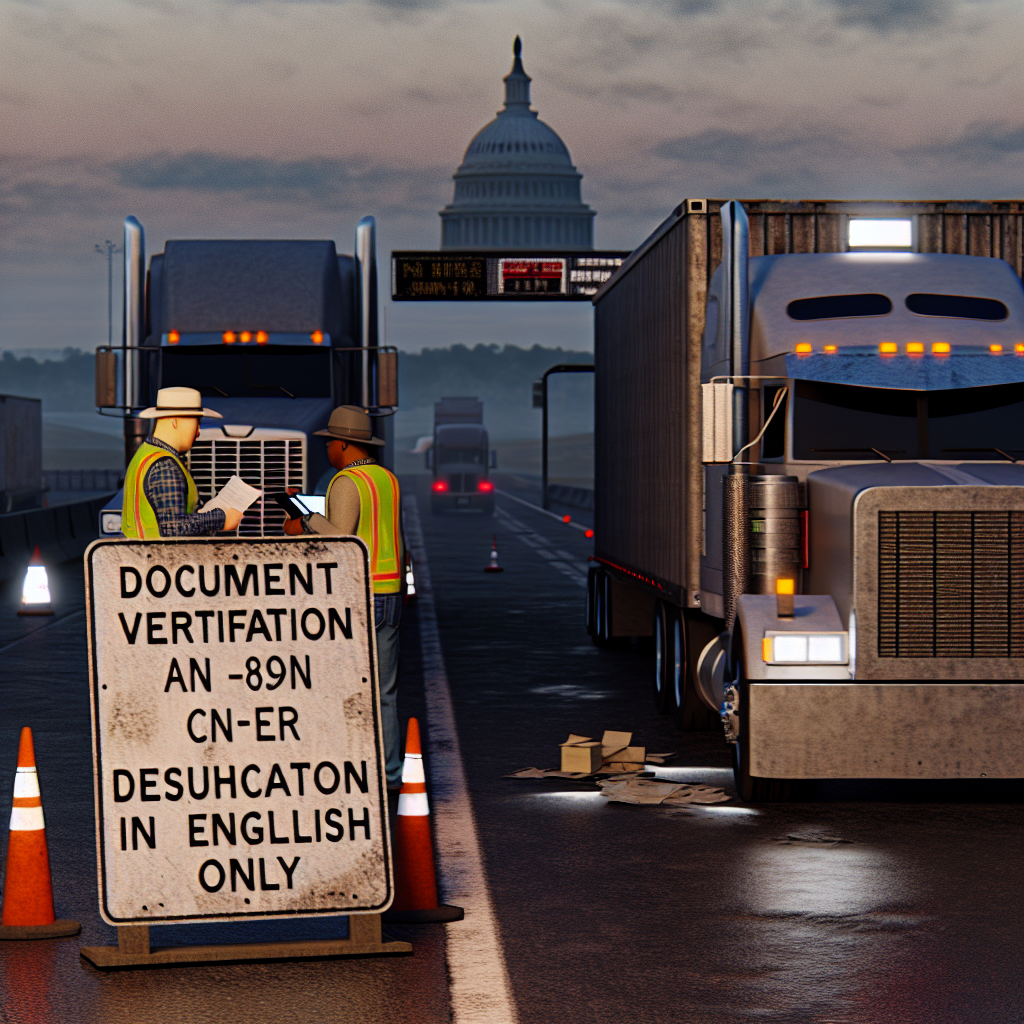A fresh Senate bill unveiled late this week moves English-only commercial driver’s license testing onto the legislative fast track, dovetailing with the administration’s renewed roadside enforcement and putting the industry on the brink of a de facto federal language mandate. The proposal arrives as carriers and drivers navigate mounting inspections for English proficiency and as states face financial penalties for not enforcing the rules.
The Secure Commercial Driver Licensing Act, introduced on October 16 by Sens. Tom Cotton, Bill Hagerty and Tommy Tuberville, would require every element of CDL testing — written exams and skills tests, including for non‑domiciled applicants — to be conducted only in English. The measure would also empower the Transportation Secretary to suspend or revoke a state’s authority to issue non‑domiciled CDLs if it’s not meeting federal standards. A House companion, led by Rep. Andy Barr, is being teed up in parallel.
The bill’s timing is no accident. It reinforces the administration’s June shift to treat a driver’s failure to meet English proficiency requirements as an out‑of‑service violation during roadside inspections — a change that’s already sidelining drivers and tightening compliance pressure across lanes. In the last three days, reporting tallied roughly 6,000 drivers taken off the road since the summer start of stepped‑up enforcement, highlighting both safety and staffing implications for fleets.
Industry implications are immediate. If English‑only CDL testing becomes law, carriers will face a single nationwide standard at the front end of licensing while roadside checks continue to police proficiency on the back end. That one‑two punch would leave far less room for state‑level variation in both training and enforcement — and could accelerate any capacity effects already emerging from roadside out‑of‑service calls. Supporters cast the approach as common sense safety policy; critics warn the tests can be subjective and risk sidelining experienced immigrant drivers.
Pressure on states is also intensifying. On October 15, USDOT began withholding tens of millions in federal safety funds from California over what the department calls non‑compliance with English‑language out‑of‑service enforcement — a move the state has publicly pushed back on. That stand‑off continued into the weekend, with California reiterating that it does not plan to conduct English “tests” at the roadside, even as federal officials insist consistent out‑of‑service actions are required.
For motor carriers, the operational playbook is getting clearer: tighten pre‑hire screening and training around English comprehension, prepare drivers for on‑the‑spot communication with inspectors, and document language‑readiness in driver qualification files. With a House companion bill emerging and Senate sponsors seeking momentum, the legislative path matters even if immediate passage is uncertain — provisions could be folded into a broader transportation or appropriations package, which would cement a national language regime that mirrors the enforcement now happening on the roadside.
Bottom line for fleets: this is no longer a theoretical debate. A second pillar — English‑only testing — is being built in Congress to sit alongside real‑time enforcement. Together they would formalize an English mandate from the licensing counter to the scale house, with safety, labor supply and compliance costs hanging in the balance.
Sources: FreightWaves, U.S. Senator Tom Cotton, U.S. Senator Tommy Tuberville, The Washington Post, Overdrive, CDLLife
This article was prepared exclusively for TruckStopInsider.com. Republishing is permitted only with proper credit and a link back to the original source.





